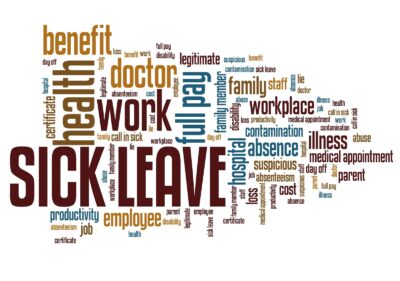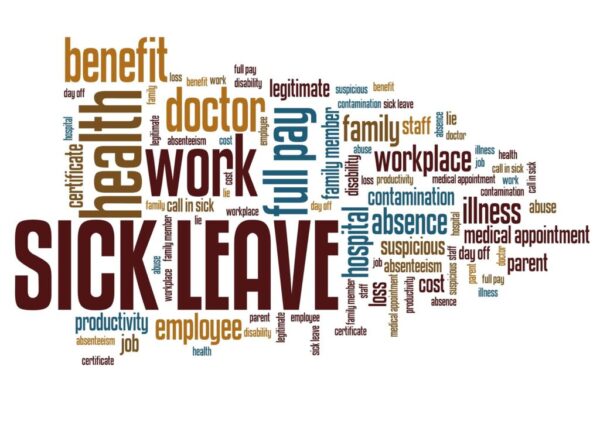Menopause symptoms can be considered a disability

The Equality and Human Rights Commission (EHRC) issued the guidance to clarify the legal obligations to workers going through the menopause.
Symptoms can include hot flushes, brain fog and difficulty sleeping.
The EHRC said bosses should offer changes such as providing rest areas or flexible hours to help.
Relaxing uniform policies to allow women to wear cooler clothes could also help.
Menopause marks the end of a woman’s menstrual cycle, and usually happens in her 40s or 50s.
Failing to make “reasonable adjustments” amounts to disability discrimination under the Equality Act 2010 if the symptoms have a “long-term and substantial impact” on a woman’s ability to carry out their usual day-to-day activities, the EHRC said.
A video explaining the guidance says: “The costs of failing to make workplace adjustments for staff can run into hundreds of thousands of pounds when taking into account the loss of talent and costs of defending a claim.”
The EHRC cited research showing that one in 10 women surveyed who worked during their menopause were forced to leave their job due to the symptoms.
Two-thirds of women between the ages of 40 and 60 experienced menopausal symptoms at work, which largely had a negative impact. Very few asked for adjustments during this time because they were concerned about the potential reaction, it added.
The EHRC adds that taking disciplinary action against women for a menopause related absence could amount to discrimination, and that language that ridicules someone’s symptoms could constitute harassment.
EHRC chairwoman Baroness Kishwer Falkner said the watchdog was “concerned both by how many women report being forced out of a role due to their menopause-related symptoms, and how many don’t feel safe enough to request the workplace adjustments”.
She added that employers “may not fully understand their responsibility to protect their staff going through the menopause”, and that the new guidance had been issued to provide advice on how they can support their staff.
By Ali Abbas Ahmadi – BBC News
Our HR Comment: – Menopause symptoms can be considered a disability and employers face being sued if they do not make “reasonable adjustments”, a watchdog has said. |Consensus HR – Herts, Beds
Matthew Chilcott, FCIPD, ACEL, Owner of Consensus HR comments: “This is another very interesting article on the Menopause and what many women suffer during their life’s and is a subject that until recently has never really been discussed generally in business. However, as this article from the BBC demonstrates, in extreme circumstances where is has not been managed correctly and best action taken such as thorough investigations into why a member of the team may not be performing it can result in some very severe financial and reputable consequences for the business. In this situation and as explained by the BBC, it would be covered by the Equality Act 2010 and full information on this act can be found in the Equality Act 2010 guidance and Definition of Disability under the Equality Act 2010
You’re disabled under the Equality Act 2010 if you have a physical or mental impairment that has a ‘substantial’ and ‘long-term’ negative effect on your ability to do normal daily activities.
What ‘substantial’ and ‘long-term’ mean
- ‘substantial’ is more than minor or trivial, e.g. it takes much longer than it usually would to complete a daily task like getting dressed.
- ‘long-term’ means 12 months or more, e.g. a breathing condition that develops as a result of a lung infection.
Organisations need to remember that employees are entitled to make a Disability claim from day one of employment and awards are unlimited.”

To view more about our range of HR & Employment Law Services
Are you concerned about how you manage and your HR and Employment Law?
Your Outsourced Human Resources (HR) Department.
For further information on any of the HR subjects we provide, please click the heading below:














































